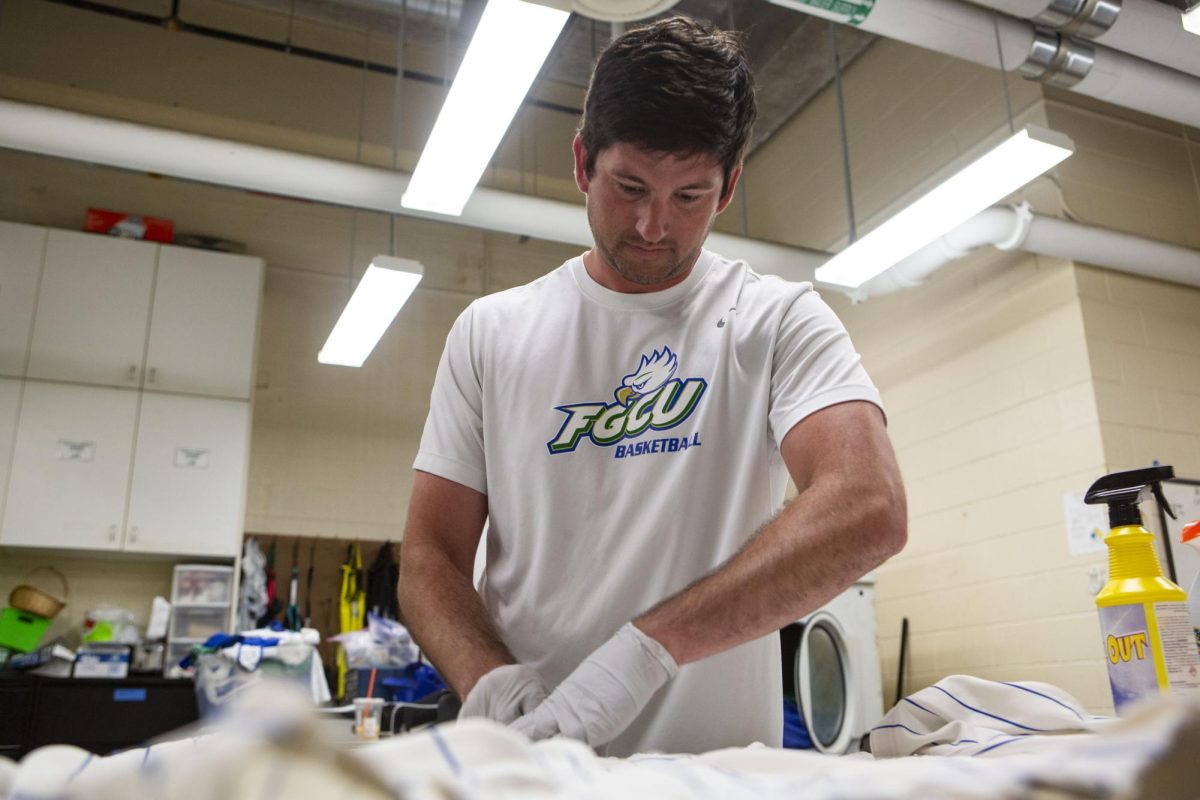Sit down and hold on to your seats. I’m about to share some information with you that you might not even be aware of.
Earlier in the semester FGCU released announced that students would no longer be allowed to wash their cars on campus. What was once a common practice among students has now been banned due to environmental issues and concerns.
The real question here is, are those issues and concerns valid?
No, they’re not.
If you Google the environmental benefits of using a professional car wash versus washing your own car at home — or on campus — many activists are pro car washes. These activists also list a variety of reasons as to why you should utilize a professional service.
It’s stated that these establishments are required by the government to treat or reuse wastewater created during the washing process. Some companies even claim to only use 15 to 25 percent of fresh water when washing your car.
Nowhere is it stated that they use eco-friendly soaps and cleaners. Neither are the energy usage or treatment methods for any car washes.
Think about it. The average car wash opens around 8 a.m. and closes around 8 p.m. That means, on average, a car wash is using energy and water for about 12 hours a day. You think, no big deal, there are plenty of major corporations that run for longer amounts of time.
Well, do these corporations run high- powered dryers, machinery, and water and soap dispensers during normal business hours? Not likely.
These car washes run at least 12 hours a day, seven days a week and it has been reported that more than eight million cars go through car washes on a daily basis. Try to imagine how much energy those car washes are using. That energy usage translates to fossil fuel burned and those burned fossil fuels translate to emissions into the atmosphere around us.
The treatment methods used by each car wash is simply stated as rerouting the dirty water to the closest water treatment facility or to reuse the water in the cleaning process.
How are we even sure this dirty water is getting transported to water treatment facilities or that these wastewater reuse methods are effective? And who wants their cars washed with dirty water?
At every car wash I go to here in Southwest Florida, the wastewater just runs off into sewers of water locations. I honestly have yet to see a car wash in this area that demonstrates proper wastewater removal or reuse. If any would like to step forward and prove me wrong, then please do.
Wastewater treatment isn’t just for the oils and lubricants that can be washed off a car. Car washes also use toxic soaps and supplies that aren’t exactly eco-friendly and are not regulated by the government in any form. So they usually go for the cheapest materials in order to cut costs and don’t think about the environmental impact.
So if we call ourselves an eco-friendly school that aims to protect the environment, why are we being forced to seek out environmentally harmful and extremely expensive methods just to keep our cars clean?
There are many ways to hand wash a car and have minimal to possibly no environmental impact.
Water-less car washes are becoming a popular option among the environmentally conscious. Water-less car wash is a high lubricated, pre-mixed spray detailer that’s used to get dirt and grime off a car. You can buy water-less car washing kits for about $50.
This method uses virtually no water, however it is recommended to use on cars with a light amount of dirt and grime. So all my fellow mudders other there, you’d probably be better off dunking your truck or Jeep in the lake.
The traditional hand wash with eco-friendly soap can work wonders as well. You don’t need a lot of water to get your car wet enough to soap up.
By using a light mist before washing, and breaking the car up into sections so you don’t have to use as much water to rinse, a hand wash can have a small environmental impact. Eco-friendly soaps and supplies aren’t that expensive, either, especially if you order over amazon.
Students can also choose to let Mother Nature do most of the work for them. With this being Southwest Florida, or just Florida for that matter, we’re all accustomed to the afternoon showers here. I know I’ve wiped down my car after a particularly heavy rainstorm and it gets the job done. Plus, it’s completely free, and what college student doesn’t like free?
The truth is we have a variety of options that are within a student’s budget and eco-friendly when it comes to washing cars on campus. This rule of no longer being allowed to take care of our property at our place of residence is unfair and not thoroughly thought through.
In an attempt to make our school seem even more environmentally conscious and “green”, we as students have been denied the ability to express our environmental consciousness in our own way.



































